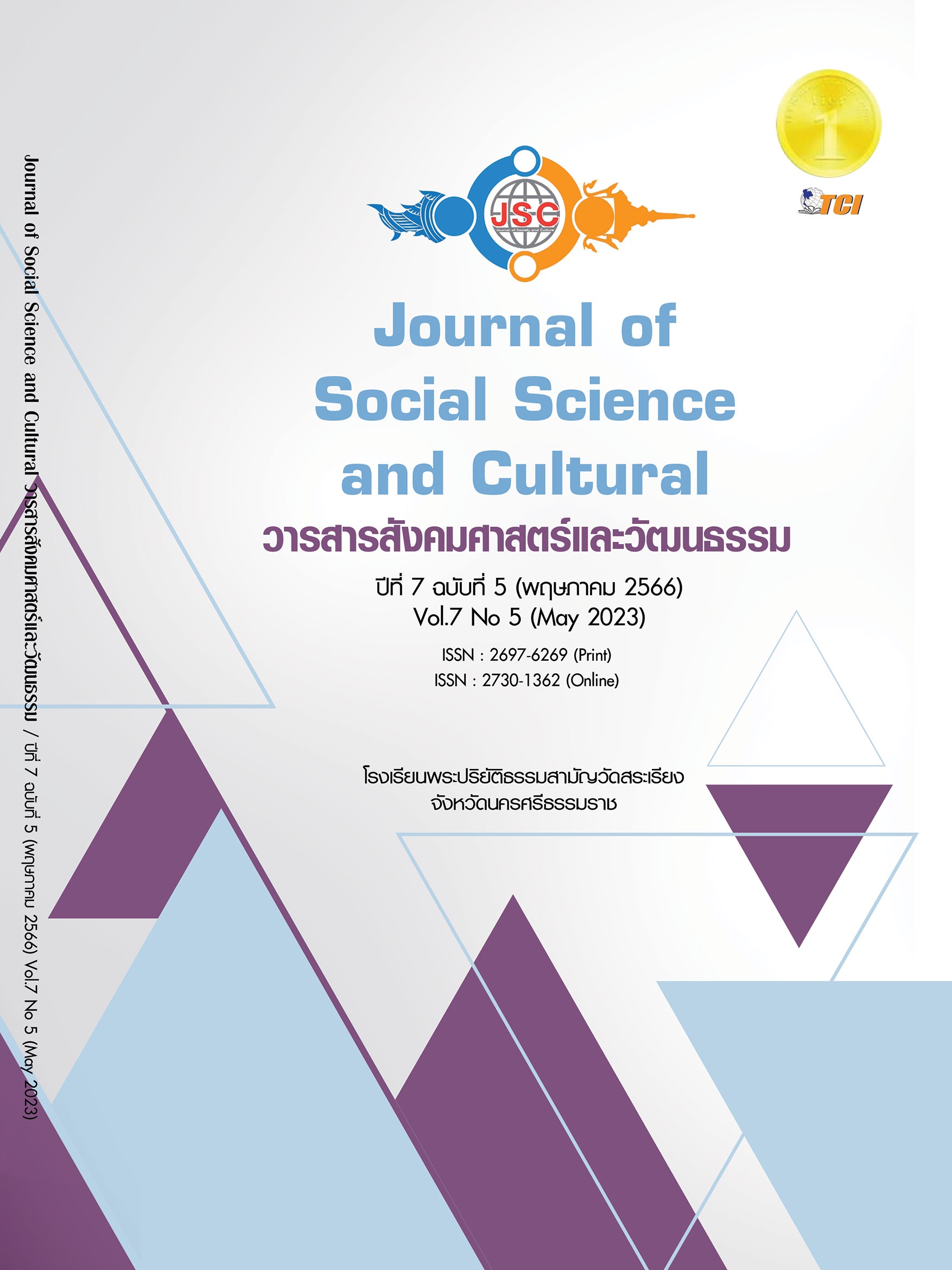A STUDY OF THE PRESENTATION AND BROADCAST OF TELEVISION MEDIA BASED STEM STANDARDS BY ANALYZING US CHILDREN’S BASED STEM CONTENTS
Main Article Content
Abstract
At the beginning of the study, Science, Technology, Engineering, and Mathematics, or STEM, plays an important role in children’s education. As STEM primarily emphasizes children’s education, it is worthwhile to do the research. Moreover, STEM TV programs in the United States are more advanced than those in China. To enhance understanding and utilize STEM standards in China properly, investigating STEM TV content in the United States is essential. The researcher is interested in STEM USA’s content whether it parallels educational standards or not. 20 shows, totaling 63 episodes, covered science, math, and other topics, were gathered from target audiences between the ages of 3-6. Password configuration is examined to prove that the content is related to Common Core State Standards (CCSS) and Next Generation Science Standards (NGSS). The findings show that 3 most occurring contents were the scientific revolution, living things, and numerals. The least occurring contents were force, energy, and natural disasters. Plus, public TV shows’ contents are more diverse than commercial TV shows.
Article Details
References
Zhang, B. H.& Zhang, H. X. (2013). การปฏิรูปและการพัฒนาการศึกษาวิทยาศาสตร์ภายใต้เบื้องหลังโลกาภิวัตน์. สัมมนาการศึกษาวิทยาศาสตร์นานาชาติ บรรยายเรื่องการคาดการณ์การศึกษาทั่วโลก, 2013 (4), 120-128.
Yu, S. Q.,& Hu, X. (2015). ทฤษฎีการศึกษา STEM กับโมเดลการบูรณาการ. Open Education Research,
, 8 (4), 13-22
Tang, X. W., &Wang, W. Z. (2014). การวิเคราะห์แนวทางที่มีประสิทธิภาพของการบูรณาการการศึกษา STEM เพื่อการศึกษาวิทยาศาสตร์พื้นฐานในประเทศจีน. Education Research, 2014, 35 (9), 61-68.
Yang, Y. P. (2015). การศึกษาเปรียบเทียบการศึกษา STEM ในระดับประถมศึกษาของอเมริกา เยอรมันและญี่ปุ่น. Elementary & Secondary Schooling Aboard,2015 (8), 23-30.
Zhao, Z. J. (2014). การปฏิรูปหลักสูตรในมุมมองของ STEM. People’s Education, 2014 (2), 64-67.
Shi, Y. (2016). การตีความรายการนิติธรรมในโทรทัศน์ผ่านมุมมองทฤษฎีการกำหนดและถอดรหัสของ Hall. Media, 2016 (07), 88-90.
Chen, J. (2014). การกำหนดและถอดรหัสในการเผยแพร่บนแพลตฟอร์ม Weibo โดยมีคลิปวิดีโอเรื่อง “การสำรวจราคากาแฟ Starbucks” เป็นกรณีศึกษา. Contemporary Communications, 2014 (03), 75-76.
Chen, C. (2011). การกำหนดตำแหน่งทบทวนการพัฒนารายการทีวีประเภทวัฒนธรรม. Modern Audio-Video Arts, 2011 (06), 51-54.
Liu, X. X. (2015). การบรรยายวิจัยรายการวัฒนธรรมบนทีวี. China Radio & TV Academic Journal, 2015 (12), 55-58.
Ding, Z. B. (2016). คุณค่าการสื่อสารและลู่ทางการสร้างของรายการทีวีวัฒนธรรม. Media, 2015 (11), 49-51.
Zhang, Z. S.,& Wu, L. S. (2019). ภาษาสุนทรียภาพ การเล่าเรื่องกับความบันเทิง: 60 ปีทีวีวัฒนธรรมจีน. Modern Communication, 2019 (01), 87-89.
Liu, C. Y. (2012). การศึกษาการพัฒนาและสภาพการณ์ของศาสตร์การเล่าเรื่องคลาสสิค.
Afterschool Education In China, 2012 (30), 29.
David, L., George, M-, David, B.,Beethika,K,Mark, D-STEM: Goad Jobs Now and for the Future[M]-US Department of Commerce,2011,3-11.
Duncan, G- J, Dowsett,C- J,Claessens,A-,Magnuson,K·, Hustan, A- C,, Klebanov,P,Sextan,H-School
Readiness and Later Achievement'[J]·Developmental Psychology, 2007,43(6):1428
Cements, D-H, Sarama, J. (2011) 'Early Childhood Mathematics Intervention [J]- Science, ,333 (6045):968-970
Clements, D. 11, Sarama, J. (2014) Learning and Teaching Early Math: The Leaming Irgectories Approach [M]. Routledge:National Academies Press,.
Bowman, B- T., Donovan, M- S.,Burns, M·S-Eager o Learn: Educating our Preschoolers[M]- National
Academies Press,2000
Bialystok, E-(1992) 'Symbolic Representatian of Letters and Numbers[J]· Cognitive Development, , 7(3):301-316
Gelman, R- (1990) 'First Principles Organize Amention to and Learning ahout Relevart Data:Number and the Animate-Iranimate Disinction as Examples [D]- Cognitive science,. 14(1). 79-106


